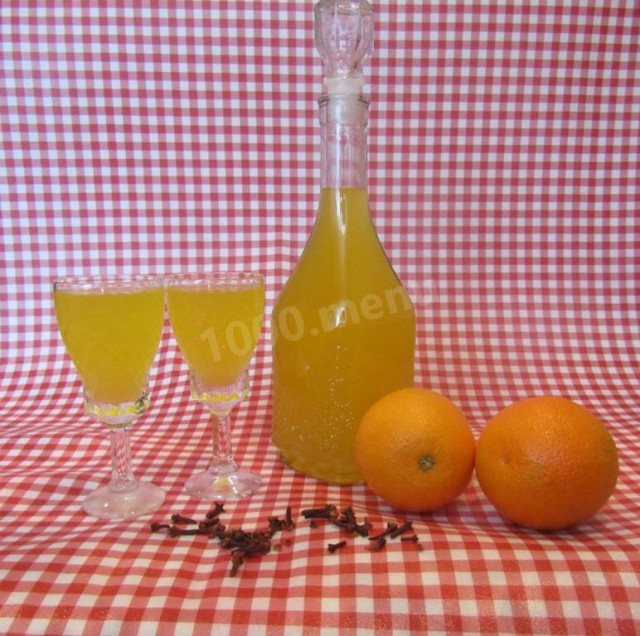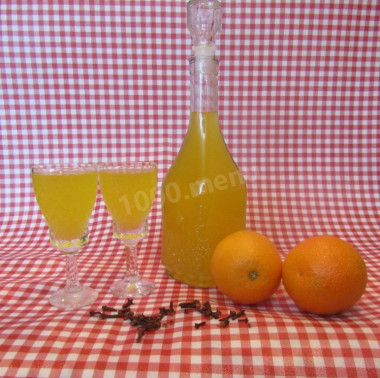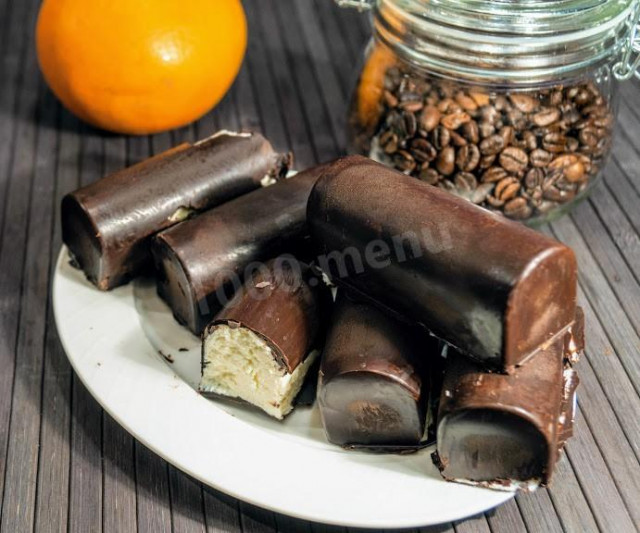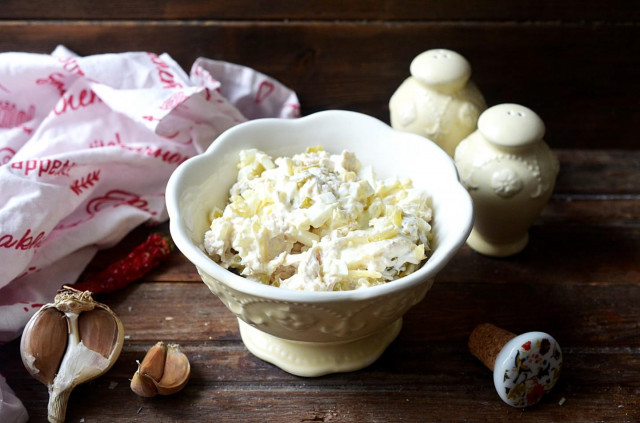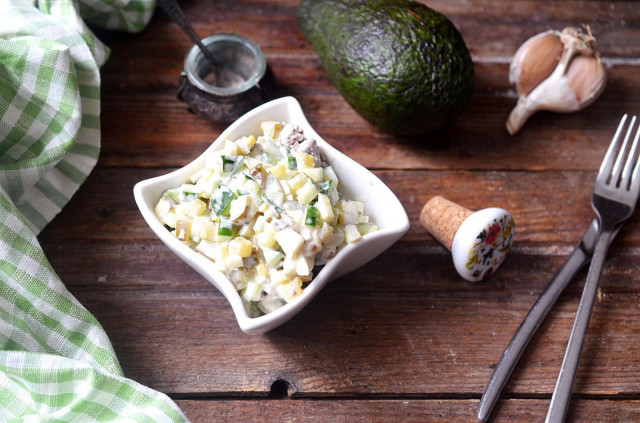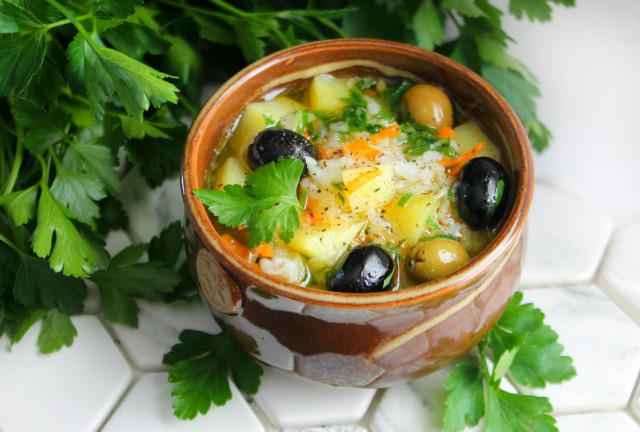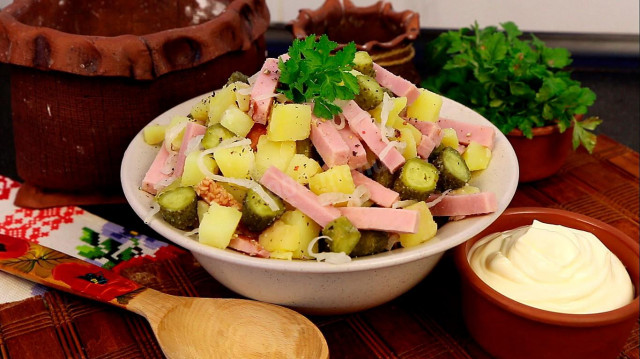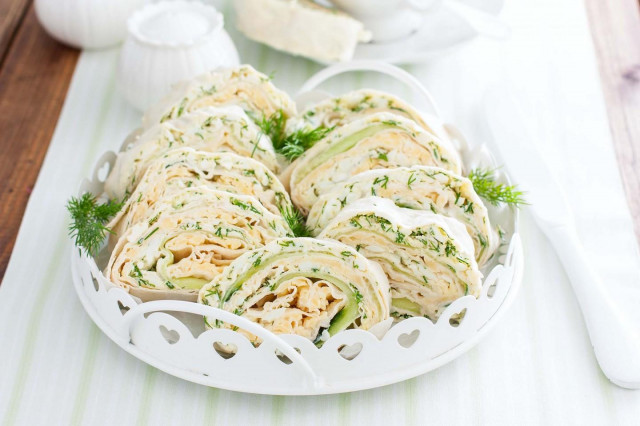Composition / ingredients
Step-by-step cooking
Step 1:
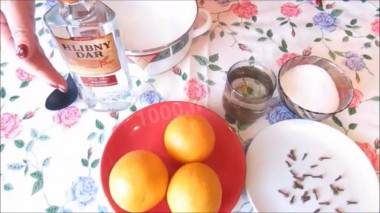
Prepare all the ingredients. In a small saucepan, mix sugar, water and cloves, put on fire and bring to a boil.
Step 2:
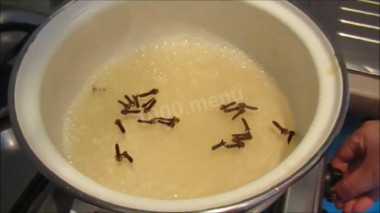
Cook sugar-clove liqueur for 15 minutes after boiling, remove from heat and allow to cool slightly. Place the oranges in a colander, scald with boiling water and wipe dry.
Step 3:
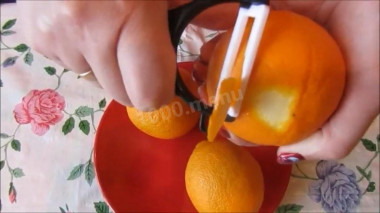
Using a knife or a vegetable peeler, remove the peel from the oranges. Place the zest in sugar-clove syrup. Cut the oranges in half and squeeze the juice into the syrup. Mix everything well and pour in vodka. Leave the liquor to infuse for 1 day, stir every 2-3 hours if possible.
Step 4:
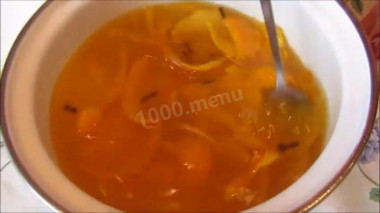
After a day, strain the liquor through a sieve and pour into a decanter to serve. From the specified amount of ingredients, 700 ml of aromatic liqueur is obtained.
Step 5:
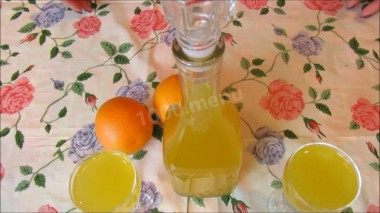
Orange-clove liqueur is ready! Have a nice time!
Liqueurs are perhaps the most numerous "detachment" among alcoholic beverages: today there are at least five hundred types of them, each of which has a unique taste and aroma. Such a rich assortment is explained simply: any berries, fruits, their skins, herbs, seeds, nuts, roots and even flowers can become the basis for the liqueur. It is not surprising that every year the rows of shelves with "sweet" bottles are replenished with more and more new "guests". Well, their saturated content is provided by a special production technology, during which the above components are infused or soaked in alcohol for several weeks to six months, and then sweetened with sugar, glucose or honey. The taste, quality and price of the drink is primarily influenced by the type of alcohol used. The first liqueurs appeared at the end of the XVII century, and they were made by Italian and French monks – people far from drinking alcohol. The fact is that in those days these drinks served as medicines. Which, by the way, they coped with successfully, because the clergy made them not from fruits and berries, but from medicinal herbs.
Caloric content of the products possible in the composition of the dish
- Carnation - 323 kcal/100g
- Granulated sugar - 398 kcal/100g
- Sugar - 398 kcal/100g
- Vodka - 235 kcal/100g
- Oranges - 36 kcal/100g
- Water - 0 kcal/100g

